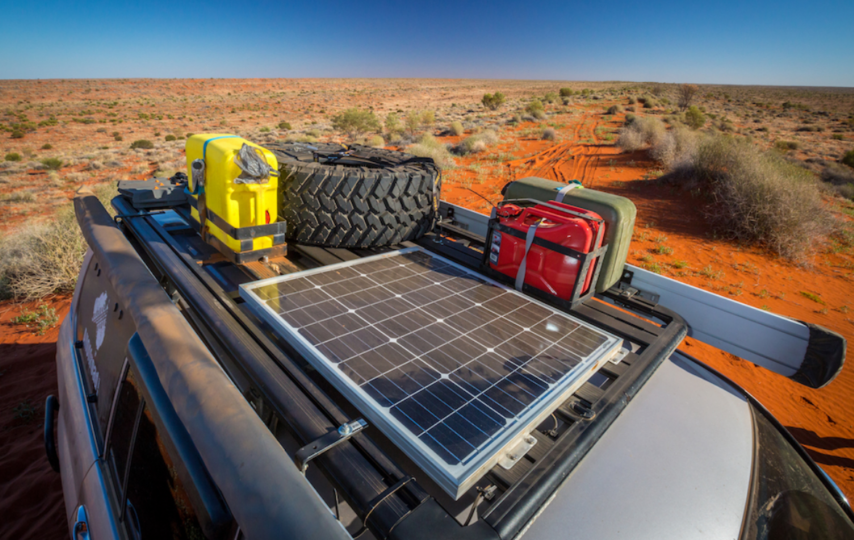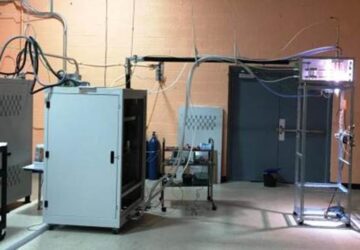In today’s rapidly evolving automotive landscape, the integration of solar panels with 4×4 vehicles represents a significant stride towards sustainable and efficient energy use. This approach not only aligns with global environmental conservation efforts but also offers practical benefits for 4×4 vehicle users. The adoption of solar technology in these vehicles is more than a mere trend; it’s a forward-thinking solution to energy needs, particularly in remote areas where conventional power sources are scarce or unavailable.
Solar panels for 4×4 vehicles serve a dual purpose. Primarily, they provide a renewable source of energy, reducing reliance on traditional fuel sources and minimizing carbon emissions. This shift is in line with the broader movement towards greener, more sustainable energy practices across various industries. Secondly, for enthusiasts and professionals who frequently use their 4x4s in off-grid locations, solar panels offer a dependable power source. They enable the operation of essential equipment such as GPS, lighting, and communication devices, crucial for safety and convenience in remote areas.
The technology behind solar panels for 4×4 vehicles has seen considerable advancements. Modern solar panels are not only more efficient in converting sunlight into electricity but also more durable, capable of withstanding the harsh conditions often encountered off-road. They are designed to be lightweight yet robust, ensuring they do not significantly impact the vehicle’s performance. Moreover, the flexibility in design allows for seamless integration with various 4×4 models, ensuring that aesthetics and functionality go hand-in-hand.
Practicality and Cost-Effectiveness
While the environmental benefits of using solar panels on 4×4 vehicles are clear, their practicality and cost-effectiveness are equally compelling. For long-haul travelers and off-road adventurers, the ability to generate power on the go means less dependency on fuel and external power sources, translating into cost savings and increased autonomy. This aspect is particularly beneficial for those who undertake extended trips in remote locations, where access to conventional fuel and power can be both challenging and expensive.
Cost-wise, the initial investment in solar panel technology can be offset by the long-term savings in fuel costs. Additionally, the maintenance requirements for solar panels are relatively minimal, making them a cost-effective solution over time. It’s important to consider the lifespan of these systems, which can last several years, further emphasizing their cost-efficiency and sustainability.
Future Perspectives and Innovations in Solar Technology
Looking ahead, the potential for innovation in solar technology for 4×4 vehicles is vast. The future promises even more efficient solar cells, capable of generating greater power output even in less ideal weather conditions. This advancement is critical for ensuring reliability, especially in regions where sunlight is not consistently strong. Furthermore, emerging technologies like flexible and transparent solar panels could revolutionize how these systems are integrated into vehicles, offering a blend of efficiency and design that is both functional and aesthetically pleasing.
Another exciting prospect is the development of smart solar systems. These systems would not only capture and store solar energy but also intelligently manage its use based on real-time energy needs and conditions. Such advancements could include automated adjustment of panel angles to maximize sun exposure or integration with the vehicle’s battery management systems to optimize charging and power distribution. This smart technology would further enhance the efficiency and user-friendliness of solar panels in 4×4 vehicles, making them an even more attractive option for consumers.
Optimizing 4×4 Performance with Current Solar Technologies
The current landscape of solar technology offers a robust solution for optimizing the performance of 4×4 vehicles. By leveraging existing solar panel technologies, 4×4 enthusiasts and professionals can significantly enhance their vehicle’s efficiency and functionality. These solar systems are designed to be user-friendly, ensuring that even those with minimal technical knowledge can install and maintain them with ease. This accessibility is crucial in promoting wider adoption and utilization of solar energy in the 4×4 community.
Solar panel kits designed for 4×4 vehicles typically include all necessary components, such as solar panels, charge controllers, batteries, and wiring. The integration of these systems into a vehicle is streamlined, with many kits designed for specific vehicle models, ensuring a perfect fit and optimal efficiency. The ease of installation means that vehicle owners can equip their 4x4s without the need for extensive modifications or professional assistance.
The operational efficiency of these solar systems is a key consideration. Modern solar panels are highly efficient at converting sunlight into electrical energy, even in less-than-ideal lighting conditions. This efficiency ensures that the vehicle’s battery is continuously charged during daylight hours, providing a reliable power source for all onboard electrical systems. It also reduces the strain on the vehicle’s alternator, potentially extending its lifespan and reducing wear and tear.
Conclusion: Embracing a Sustainable Future
The integration of solar panels with 4×4 vehicles is more than a technological advancement; it represents a shift towards a more sustainable and conscious approach to energy use in the automotive sector. This trend aligns with global efforts to reduce carbon emissions and mitigate the impact of climate change. By adopting solar technology, 4×4 users not only contribute to these efforts but also enjoy practical benefits, such as reduced fuel costs and increased independence.
In conclusion, solar panels for 4×4 vehicles are a hallmark of innovation and sustainability. As the technology evolves, we can expect to see even more efficient, user-friendly, and cost-effective solar solutions. This progress will undoubtedly play a significant role in shaping the future of the automotive industry and our approach to energy consumption. The journey towards a more sustainable future is ongoing, and solar technology for 4×4 vehicles is a pivotal part of this journey.








